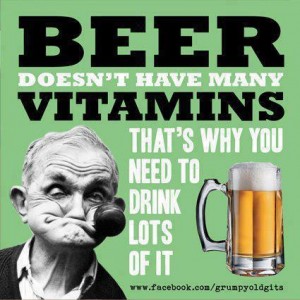CrossFitter’s place an inordinate amount of energy in deciding which preworkout to take, what is the best protein, and how to maximize lifts. As we discussed in our previous article, proper protein intake is a valuable resource to assist in gaining lean muscle, strength gains, and recovery. Along similar lines, proper vitamin and mineral consumption is not only necessary for their life sustaining functions, but are also necessary for protein synthesis, and muscle recovery and growth. As a CrossFit athlete, you know that while the science and hearsay on supplementation is ever changing, certain things remain true: In order to achieve optimal results, your body must maintain adequate blood levels of vitamins and minerals.
This article will provide a baseline understanding of proper vitamin intake, as well as provides an understanding of whether or not a multivitamin is necessary for you as a CrossFit athlete. This article is geared towards the CrossFit athlete who lacks a knowledge of which vitamins and minerals are necessary for a fruitful CrossFit experience. This includes, for example, the recreational CrossFit athlete; the mom and dad; or the lawyer and teacher. In other words, the car salesman who does CrossFit to stay fit, not the individual who aspires to compete in the Sport of Fitness. By no means does this article provide a comprehensive listing of all known vitamins and minerals, their effects, or their limitations.
Is Vitamin and Mineral Supplementation Absolutely Necessary?
The bottom line is that no one absolutely needs to supplement with a multivitamin, however, there are overall benefits to proper vitamin supplementation. The decision to take a daily multivitamin is a personal choice for each CrossFit athlete. A well balanced diet consisting of whole unprocessed foods will provide you all of the vitamins and minerals you need. “Need” is only created by consuming a less than nutritious diet. Moreover, supplementation, by way of a multivitamin, is in no way a substitute for poor nutrition.
Although it is possible to get all of your vitamins and minerals from a diet alone, the reality is most of us don’t receive an adequate amount of vitamins and minerals from our daily diets. Further, relying on the Recommended Daily Allowance (RDA) is not an effective tool to measure the nutritional allowance of the typical CrossFit athlete. First, the RDA was established during World War II, and has undergone little change since its inception. Second, the RDA does not take into account environmental and lifestyle factors that place stress on your body (exercise, in any form, is by nature a stressor). Third, the RDA does not take into account height, weight, activity levels, and other variables which influence caloric, vitamin and mineral needs. As a result, the RDA is a pretty much useless indication of the vitamin and mineral needs of the average CrossFit athlete.
Properly used, vitamin supplementation can be used as a bridge between your consumption of whole foods, and the nutritional requirements you need as a CrossFit athlete. Supplementation of individual vitamins and mineral are a possible course of action, however, this would require identification of what, if any, deficiencies you may have. The better course of action is to simply take a multivitamin, or vitamin pack, to supplement your needs. I recommend taking a vitamin pack. While your body may not be deficient in some of the vitamins and minerals, a multipack provides broad spectrum coverage of all the possible deficiencies, as well as provides you with the necessary elements for full athletic performance and recovery. Quality vitamin packs are available at GNC and Vitamin Shoppe, as well as other vendors. Avoid vitamin packs that are marketed to a specific group of people (Women’s Only or Men’s Only), as they have little appreciable differences, and are usually nothing more than a marketing gimmick.
A Word of Caution: Be warned that vitamins such as A, D, E, and K are fat soluble vitamins, and are thus stored in the body. Over ingestion can result in toxicity, as these vitamins are not rapidly eliminated from the body. In contrast, B and C are water soluble, not stored by the body, and are more readily eliminated. Having said this, absent any underlying disease process, there should be little concern relative to vitamin or mineral toxicity with proper vitamin supplementation. If you do have any underlying medical issues, you should consult with a physician prior to any type of supplementation, including seemingly innocuous protein and vitamins.
Practical Benefits of Vitamins and Minerals for the CrossFit Athlete
The benefit of vitamins and minerals is varied. The common vitamins and minerals which could benefit CrossFit athletes include calcium, Vitamin D, the B Vitamins, iron, zinc, magnesium, as well as some antioxidants such as Vitamin C and E, Beta Carotene, and Selenium. Below is a breakdown of the benefits each of these will have for you.
The B Vitamin Family:
B vitamins assist in optimal energy production as well as the building and repair of muscle tissue. Thiamin, riboflavin, niacin, B6, panthothenic acid, and biotin are directly involved in energy production during exercise. Folate, and B12 are necessary for the production of red blood cells, protein synthesis, and tissue repair.
Vitamin D:
Vitamin D is a necessary vitamin which enables calcium absorption, as well as regulation of blood calcium levels, and overall promotion of bone health. Although vitamin D can be manufactured by exposure to the sun, generally speaking, our exposure to the sun is not normally enough to supply vitamin D in the requisite quantities.
Antioxidants:
As antioxidants, vitamins C and E, beta carotene, and selenium are important nutrients that play a part in protecting cell membranes from damage.
Minerals:
Calcium is important for growth, maintenance and repair of muscle tissue, regulation of muscle contraction, nerve conduction, and blood clotting. Additionally, low levels of calcium can increase the risk of low density bones, and stress fractures
Iron is essential for the formation of hemoglobin and myoglobin, which are proteins which carry oxygen. Iron also provides building blocks enzymes for energy production. Low levels of iron, known as anemia, will essentially cause you to have chronic fatigue.
Similar to iron, the B vitamins, and calcium, zinc plays a role in the building and repair of muscle tissue, energy production and, more importantly, immune system function.
Magnesium plays a role in cellular metabolism, neuromuscular, cardiovascular, and immune functions. Athletes deficient in magnesium may experience impaired endurance performance because of an increase in oxygen requirements.
Sodium, Chloride and Potassium:
Sodium, chloride and potassium are all electrolytes which facilitate the conduction of electrical charges and nerve impulses. Low levels of either of these electrolytes usually manifest as cramping. Supplementation with sodium should be generally avoided, as you acquire enough sodium through the foods you consume. Potassium supplementation should also be avoided, as increases in potassium levels can lead to irregular, and sometimes deadly heart arrhythmias. The amount of sodium and potassium in vitamin packs is nominal, and will not have an appreciable direct result on your blood levels, absent an underlying disease process.
Conclusion:
The reality is that as a CrossFit athlete, it is possible that you are not obtaining adequate amounts of vitamins and minerals through food consumption. As the research has shown, active individuals and performance athletes need even more than the recommended daily amounts for energy, metabolism, repair, and recovery. At the end of the day, multivitamins and vitamin packs provide a low cost benefit to you as a CrossFit athlete. A small investment is all that is necessary to get you closer to your goals.
-Coach Larris
CrossFit Prelude. “The Beginning of Something Better.” What is Your Something?


